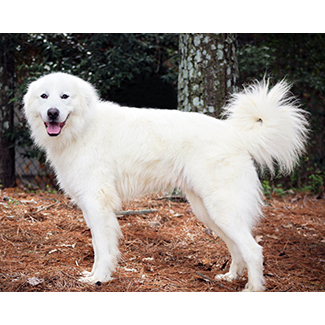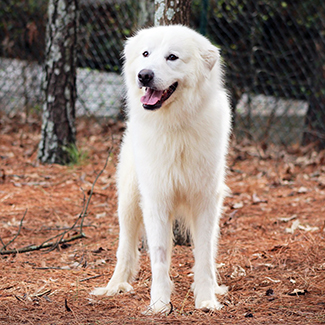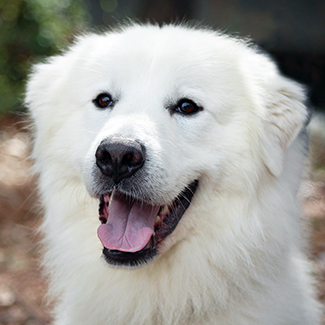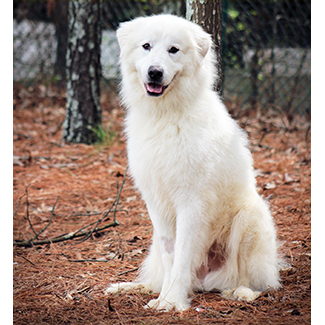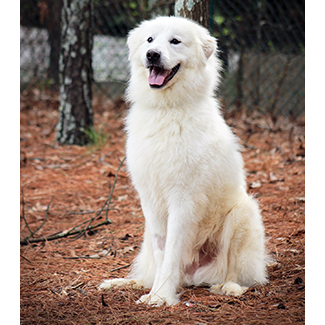Craig
Hey ya’ll, I’m Craig, a three year old, 63 lb. boy who one minute was running with my two Pyr buddies and the next I was in a truck on the way to a loud building with a lot of cages. GPRA gave me a temporary foster family, which is way better than that other place. Plus, they have lots of food, which I really need to get back up to my ideal weight of BIG DOG. Also, my borrowed family seems to really like talking about me and since I don’t know much about myself, I pretend to be resting and eavesdrop. Apparently I’m sweet, handsome, energetic, will jump high over and over for treats, not aggressive toward other dogs, and will be great in a pack. A pack of what I wonder? My foster humans also say I like attention, don’t drool, enjoy running in the yard with them, walk well on a leash (yay, me), love people (true, true, true), I’m learning my house manners quickly (whatever those are), and I don’t seem stubborn like other Pyrs. Of course no one is Pyrfect, at least not right away, so I should probably be honest and share some of the other stuff, too. Even though I can’t talk, I’m a little mouthy and new situations make me very nervous, sometimes even scared enough to dash away. Last thing, I’m what humans call “in tact” so we can work on undoing the natural marking and dominance behavior as soon as I’m neutered. I know, sounds like a lot but I’m a stray and well, until now I had to look out for myself. Maybe we can meet and discuss you looking out for me instead? You talk while I stare at you adoringly until I win your heart. Please email info@greatpyratlanta.com or click the “Apply to Adopt” button below and let the swooning begin!
Donate to Great Pyrenees Rescue of Atlanta
Our main mission at GPRA is to find the right permanent home for Great Pyrenees in distress, whether they are strays or from an overpopulated kill or no-kill shelter. We don’t care how old they are or what their medical condition is because we will make sure they receive a comprehensive medical evaluation, spaying or neutering, and even behavioral training if necessary.

